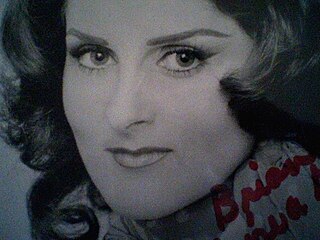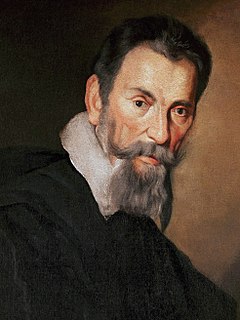Related Research Articles

Lo sposo deluso, ossia La rivalità di tre donne per un solo amante is a two-act opera buffa, K. 430, composed by Wolfgang Amadeus Mozart between 1783 and 1784. However, the opera was never completed and only a 20-minute fragment from act 1 exists.

The Symphony No. 38 in D major, K. 504, was composed by Wolfgang Amadeus Mozart in late 1786. It premiered in Prague on January 19, 1787, during Mozart's first visit to the city. Because it was first performed in Prague, it is popularly known as the Prague Symphony. Mozart's autograph thematic catalogue records December 6, 1786, as the date of completion for this composition.

Antonio Smareglia was an Italian opera composer.
Franco Casavola was a Futurist composer and theorist. He is noted as one of the authors of the Le Sintesi Visive della Musica, a manifesto that proposed the intrinsic visual counterparts of music.
Sir David McVicar is a Scottish opera and theatre director.
The year 1639 in music involved some significant events.

"Dove sono" is an aria in Italian for lyric soprano from the third act of Mozart's 1786 opera Le nozze di Figaro. Countess Almaviva laments, in an initial recitative, that her husband has become a philanderer, and that she must rely on assistance from her maid to manipulate him. In the aria, she calmly remembers moments of love, and hopes, with increasing agitation, that her persistence may make him love her again. It is frequently performed in recitals and featured in anthologies of vocal music for lyric soprano.
Angelo Tarchi was an Italian composer of numerous operas as well as sacred music. Between 1778 and 1787, he worked primarily in Italy, producing five or six new operas each year.

Susanne Marsee is an American mezzo-soprano of note, particularly acclaimed as a singing-actress.

Count Evremond de Saint-Alary (1868–1941) was a leading owner and breeder of Thoroughbred racehorses in France. Heir of a well known family from the French West Indies, as a young man in his twenties Saint-Alary became involved in horse racing and in the early 1890s acquired Haras de Saint Pair du Mont, a horse breeding farm at Le Cadran near Cambremer in Calvados, Normandy.

Adam Didur or Adamo Didur was a famous Polish operatic bass singer. He sang extensively in Europe and had a major career at New York's Metropolitan Opera from 1908 to 1932.

Fra i due litiganti il terzo gode is a dramma giocoso in two acts by Giuseppe Sarti. The libretto was after Carlo Goldoni's Le nozze.
Rondò is a type of operatic vocal solo, popular in the late 18th century. The name identifies both a musical form and the type of materials used.

Filippo Gragnani was an Italian guitarist and composer.
Giulio Litta, Viscount Arese, was an Italian composer. He was trained at the Milan Conservatory where his first opera, Bianca di Santafiora, premiered in 1843. He composed several more operas, most of which premiered at theatres in Milan. His last opera, Il violino di Cremona, was heard at La Scala in 1882.

The Italian composer Claudio Monteverdi (1567–1643), in addition to a large output of church music and madrigals, wrote prolifically for the stage. His theatrical works were written between 1604 and 1643 and included operas, of which three—L'Orfeo (1607), Il ritorno d'Ulisse in patria (1640) and L'incoronazione di Poppea (1643)—have survived with their music and librettos intact. In the case of the other seven operas, the music has disappeared almost entirely, although some of the librettos exist. The loss of these works, written during a critical period of early opera history, has been much regretted by commentators and musicologists.
Émilien Pacini was a 19th-century French librettist of Italian origin.

"Va tacito e nascosto" is an aria written for alto castrato voice in act 1 of George Frideric Handel's opera Giulio Cesare in Egitto, composed in 1724 to a libretto by Nicola Francesco Haym. Sung by the character Julius Caesar, it features extensive solos for natural horn.

Scipione Agnelli was an Italian Catholic bishop, scholar and jurist.
References
- Giulio Alary at the Enciclopedia Treccani (in Italian)
- Free scores by Giulio Alary at the International Music Score Library Project (IMSLP)